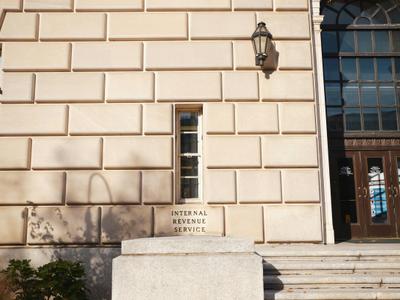When the Commercial Property Chain Breaks: 8 Practical Strategies for Borrowers
Discover the common mistakes that property investors make when facing a broken chain, and the 8 strategies every borrower should use to protect themselves against high fees and unfavourable terms.

As a commercial property borrower you face a brutal web of competing interests when your chain breaks. Banks, brokers, and some lenders circle like sharks, each extracting maximum value while limiting their risk exposure. Why? Because a borrower with a broken chain has no leverage. Their desperation creates perfect conditions for highly questionable financing terms, hidden fees, and accelerated timelines that benefit everyone except the borrower. Do you think this is an exaggeration? Consider how some lenders charge 1-2% monthly for money that costs them a fraction of that amount, even as recent data from MT Finance reports an increase in the average bridging loan interest to 0.88% / month in 2024, the highest since 2015. Information asymmetry is the lender's best friend – borrowers rarely understand the full implications of personal guarantees, cross-collateralisation, and default provisions hidden in urgent financing documents. And when analysing the relationships between borrowers, their current bank, specialised lenders, and conveyancers, the dynamics are clear: they all benefit by extracting maximum fees while protecting their own interests, not yours. The key to surviving this system lies in strategic preparation and smart management of each stage of the process:
- Exploit the Time Pressure Gap
Some specialised lenders exploit your desperation when your chain breaks. They know exactly how banks work, what the deadlines mean, and where you can get squeezed. How? They're staffed with ex-bankers who understand commercial property financing inside out. Want to avoid getting fleeced? Interview multiple bridge lenders immediately – before your chain even shows signs of breaking. Get sample term sheets, compare interest rates (including all fees, not just the headline rate), and understand default terms. Store these contacts in your phone and establish relationships now. Why? Because when panic sets in, you'll make terrible financial decisions. It's simple psychology – under pressure, humans default to the first available option. Doing this homework now means you're negotiating from knowledge, not desperation. If you don't, you'll pay thousands more in interest and fees, potentially wiping out your entire profit on the transaction. This approach works especially well for small commercial property investors and business owner-occupiers who lack the negotiating power of larger entities.
- Understand the Documentation Timeline Trap
Commercial property transactions collapse because of misaligned document submission deadlines. Your mortgage offer requires property insurance, but insurance providers need lease details before issuing policies, while your solicitor hasn't received the lease because the seller's solicitor is waiting for management company information. How do you break this cycle? Create your own transaction timeline document – a single sheet with every required document, who's responsible, who needs it, and crucially, the deadline date. Share this with everyone in your chain, update it daily, and highlight bottlenecks immediately. Schedule twice-weekly calls with your solicitor specifically to review this document. Why does this work? Because it creates accountability and transparency where usually there's none. Without this system, critical documents remain invisible until too late, with each party blaming the next when your completion fails. Miss this step and you'll find yourself days before completion with an insurance policy that doesn't meet lender requirements, forcing you into expensive bridging finance. This strategy is particularly effective for medium-sized commercial property investors who are managing multiple property transactions simultaneously.
- Prepare the Perfect Backup Financing Bridge
When your chain breaks, conventional high-street banks will abandon you – the timing just doesn’t work for their processes. Instead, create a pre-approved bridge financing package. Approach specialised bridge lenders now and submit full application paperwork for pre-approval. Supply comprehensive information on both properties (the one you're selling and the one you're buying). Get written confirmation of terms, complete their KYC requirements, and establish a direct line to their underwriters. Why bother? Because when crisis hits, you'll cut approval time from weeks to days. The lender already knows you, your properties, and has conducted initial due diligence. You become a low-risk fast completion rather than a desperate gamble. Without this preparation, you'll face urgent application fees, rushed valuations at your expense, and interest rates 3–4% higher than necessary. Worst case? The property you're buying gets sold to a cash buyer while you're still completing paperwork. This strategy works particularly well for experienced commercial landlords who understand financing terms but need faster execution than traditional banks can provide.
- Master the Lender-Broker-Valuer Triangle
Your property chain breaks. Now you need urgent financing. But here's what's really happening behind the scenes: the broker promises a fast turnaround to get your business but knows the lender's valuers are backlogged. The lender won't instruct the valuer until they've credit-checked you. The valuer prioritises steady clients (banks) over one-off urgent valuations. How do you escape this trap? Build direct relationships with commercial valuers and specialised lenders now. Introduce yourself to local commercial valuers, explain your investment strategy, and get their direct contact information. When crisis hits, instruct a valuation immediately at your own expense, before applying for the loan. Simultaneously apply to multiple bridging lenders who'll accept an independent valuation. Why? This cuts weeks from the process – you're not waiting in the valuer's queue while your deal collapses. Skip this strategy and you'll be at the mercy of the lender's timeframes, watching helplessly as your purchase deadline approaches. This works especially well for property developers and larger commercial investors who regularly need property financing and can justify maintaining these professional relationships.
- Strategically Manage the Chain Break Information Flow
When your property chain breaks, everyone who knows about it gains leverage over you. The moment your estate agent learns your buyer has withdrawn, they immediately tell other potential buyers, sellers, and competing brokers – not to help you, but to create backup options that generate additional fees. How do you maintain control? Implement a strategic information containment plan. First, inform only your direct legal representative about the chain break. Second, create a tailored narrative for different stakeholders – tell your seller you're "reorganising financing" rather than "lost my buyer." Third, set up a daily update schedule that you control. Why? Because information leakage accelerates the problem. Your seller panics and accepts another offer. Your lender gets nervous and adds conditions. Other buyers sense weakness and reduce offers. Without this strategy, you'll find yourself blindsided when your seller's agent calls saying they've accepted another offer because "we heard your funding fell through." This approach is particularly valuable for commercial property traders who operate in small, interconnected local markets where information travels quickly among competing professionals.
- Unlock the Power of the Search Indemnity Policy
The standard commercial property contract requires searches before completion, but these typically take 2–4 weeks – time you don't have when a chain breaks. How can you complete quickly without them? Utilise a search indemnity policy. This specialised insurance covers risks typically identified in local authority searches, allowing completion without waiting for search returns. Speak directly with commercial property insurance brokers about search indemnity options for your specific property type. Have them prepare quotes in advance based on the property value and location. When your chain breaks, you can immediately present this solution to your lender and solicitor. Why is this critical? Because it can cut completion time by weeks. Without this knowledge, you'll be stuck paying for expedited searches at premium rates while still missing deadlines, or worse, losing the purchase entirely. Remember: most solicitors won't proactively suggest this solution as it requires additional work and introduces potential professional liability concerns for them. This approach is particularly effective for commercial property investors purchasing properties in areas with known local authority delays or for time-sensitive business relocations.
- Decode the Hidden Conveyancing Timeline
Commercial property conveyancing timelines are deliberately made impenetrable, with solicitors claiming "it takes as long as it takes." In reality, it's a sequential process where specific bottlenecks can be identified and overcome. What's the solution? Create a parallel processing system. First, request your solicitor's complete commercial transaction checklist on day one. Second, identify which items can be processed simultaneously rather than sequentially. Third, offer to pay for additional legal support staff hours to handle the increased workload. For example, have one paralegal focus exclusively on lease review while another handles the property title investigation simultaneously. Why does this work? Because standard conveyancing practice is to process items sequentially to optimise the law firm's resources, not your timeline. By paying for parallel processing, you can cut completion time by 50%. Just like the Roman Gromatici, the ancient surveyors of the Roman Empire (27 BCE–476 CE), who skilfully navigated the complexities of land measurements and legalities to expedite land use efficiently, today's property investors can equally unlock expedited operations by leveraging parallel processes and resource allocation. If you don't implement this strategy, you'll be stuck in the firm's standard workflow, where your file sits untouched for days between actions. This approach is particularly valuable for commercial property developers who face significant holding costs for each day of delayed completion and can justify the additional legal expenses.
- Leverage The Pre-Exchange Deposit Tactic
When your chain breaks, your seller's trust evaporates immediately. They'll be fielding backup offers within hours, putting your purchase at risk. How do you secure your position? Offer a substantial non-refundable pre-exchange deposit directly to the seller. Propose 2–3% of the purchase price held by their solicitor as a demonstration of commitment, with specific conditions for its release if you don't complete within an agreed timeframe. Create a simple side agreement outlining these terms, separate from the main contract. Why is this powerful? Because it transforms you from a high-risk buyer to a committed purchaser with "skin in the game." The seller receives immediate financial benefit and security, making them more likely to grant you the extra time needed to arrange alternative financing. Without this approach, you're just another buyer making promises while the seller entertains more secure offers. If you lose the property, you'll face not only lost opportunity but potentially significant sunk costs in surveys, legal fees, and finance applications. This strategy works particularly well for business owners purchasing their trading premises who can demonstrate the significant operational impact of losing their chosen property.
Key Takeaway: Control the Outcome When the Chain Breaks
The commercial property chain break system is designed to extract maximum value from your vulnerability. How? Every player – from brokers charging "urgent" fees to solicitors billing extra hours for "expedited" work – profits from your crisis. What's really happening? Some finance companies have built their business models around distressed borrowers. They use psychological pressure, exploiting your fear of losing deposits or business premises to extract maximum profit. Why are you vulnerable? Because knowledge is deliberately kept from you. Specialised lenders maintain obscure documentation requirements. Valuers operate to hidden timelines. Conveyancers use impenetrable legal processes. This information asymmetry isn't accidental – it's engineered to keep you dependent on intermediaries who charge for access to this hidden knowledge. How does this trap you? The moment your chain breaks, you lose all negotiating power. Lenders know you face completion deadlines. Brokers know you can't comparison shop. Specialised legal teams know you have no alternative. This creates perfect conditions for exploitative terms, hidden fees, and rushed decisions that benefit everyone except you. Can you break free? Yes, but only with advance preparation and understanding the true market forces at play.
Property investment is hard enough. LoanLabs optimises your funding so you can focus on your business. We would be delighted to fund your project too – contact us in confidence at www.loanlabs.com.
#loanlabs #brokenpropertychain #commercialproperty #bridgingfinance #propertyinvestment #financeadvisors #duediligence #highstreetbanks #marketdynamics #valuertimelines #searchindemnitypolicy #conveyancingtimelines #preexchangedeposit #financing #commercialtransactions #propertydevelopers #protectinvestment #duediligence #timemanagement #commercialfinance #strategicplanning #propertydeals #loanterms #funding #smallbusiness #businessowners #commerciallandlords #investmentstrategy #propertystrategy #money #wealth #wealthmanagement #privateequity #familyoffice #hnwi #privatedebt #privatecredit #credit #debt #lending #business #finance #finances #investors #investments #investing #bankingindustry #connections #markets #commercial #realestate #landlords #property #housing #propertyinvestors #propertyinvestments #development #london #dubai #uae #china #hongkong #singapore #turkey #saudi #rics #mrics















